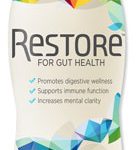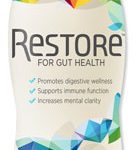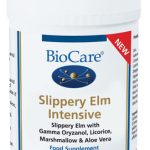If you’re a regular reader of this blog, you’ll have doubtless come across the claim that it’s of paramount importance to ensure the environment in your intestines – or, rather, your gut – is healthy. Its diversity must be strong. And that means that, among the 100 billion bacteria it ought to be home to, it should have a healthy balance of ‘good’ and ‘bad’ bacteria; that’s to say, the bad bacteria shouldn’t have the upper hand.
Otherwise, harmful, debilitating and long-term conditions like irritable bowel syndrome (IBS), gluten allergies and obesity can take hold. There’s even debate that the seemingly ever-growing number of autism cases as well as Alzheimer’s disease and multiple sclerosis may, in part, be caused by an unhealthy gut lacking in diversity1. And with both willing and unwilling consumption of the likes of antibiotics, pesticides and genetically-modified (GMO) foods often to blame for an unhealthy gut2, it’s a serious and an all too common problem. So, in more detail, why don’t we take a look at some of the biggest and most obvious reasons for ensuring your gut flora remains healthy?
Healthy gut flora benefits
Unfortunately, a lack of healthy diversity in the gut could lead to a worse intestinal-focused complaint than IBS; it could also help bring about Crohn’s disease. Healthy flora then, by contrast, is an excellent insurance policy against developing Crohn’s, a long-term illness that afflicts people with inflammation of the digestive system’s lining. Indeed, research has linked inflammation levels among Crohn’s sufferers with an overabundance of specifically harmful bacteria types in their intestines3. That said, in addition to reducing the chances your body will experience serious gastrointestinal issues, a balanced and healthy gut flora does a pretty simple, positive thing – it helps with your general digestion.
Recent research seems to proves this fact, suggesting a diverse microbiome contributes to intestinal integrity4, which means it aids in the gut choosing to allow only non-harmful contents to pass elsewhere into the body where they’ll do good (such as providing food to be transformed into energy for cells) and aids it ensuring non-useful, potentially dangerous contents are harmlessly transported to the excretory system.
Meanwhile, experts are slowly unearthing the complex gut-brain connection and appear to have discovered there may be a link, as mentioned, between intestinal health and autism, with a by-product of certain gut-focused treatments being that, in boosting bacteria levels, they maybe help the condition of autistic children5, 6. Furthermore, other research suggests healthy gut flora contributes positively in combating depression and anxiety7.
How to restore your gut flora
So much for the benefits of restoring your gut flora to its healthiest possible balance and diversity, but how do you actually do it? Well, it’s true that there are an awful lot of naturally-derived supplements on the market that claim to do just that – and a number of them are certainly effective. Indeed, terms you’ve probably heard used to describe such products are ‘probiotics’ and ‘prebiotics’. To be clear, they’re not the same thing.
Probiotics specifically add to the ‘good’ or ‘healthy’ bacteria in the intestinal tract, in order to help balance out the gut flora (thus reducing the dominance of ‘bad’ bacteria and similarly harmful toxins); prebiotics are fibres that, once consumed, act as food for probiotics in the gut, enabling the latter to survive, grow and multiply. All very good, but it’s fair to point out that, as gut-focused supplements, probiotics and prebiotics do have drawbacks – there are some things they’re not so adept at.
First up, probiotics certainly do boost numbers of ‘good bacteria’ in the intestines, but many of the probiotic supplements available will provide around 30 additional strains of gut bacteria, the problem being then this could lead to a ‘monoculture’ of just a few probiotic strains in your gut. The reality is your intestinal tract requires between 20,000 and 30,000 of them to be properly healthy and, thus, functioning as effectively as possible.
Moreover, prebiotics (although definitely helping to support an injured gut in the work they do) are unfortunately, like too many probiotic products, unable to address the all-important ‘tight junctions’ in the gut wall. All-important? Yes; if these junctions become too loose damaging toxins can pass through the gut and elsewhere into the body, harming the immune system especially. In which case, what you may feel you really need is a supplement that works to boost the gut flora productively (and in great, healthy numbers) and works to strengthen the lining of the gut wall at the same time.
Restore – neither a probiotic nor a prebiotic
The answer to getting your gut ecosystem right while tightening those intestinal wall junctions could just lie in a product named Restore (for Gut Health). Developed in the United States by a team of leading scientists headed by endocrinologist Dr Zach Bush, it’s a plant-derived, fluid-based supplement that, indeed, seeks to do what neither probiotics nor prebiotics – nor pretty much any other supplements – can.
And it does this because it enables clear and decisive ‘communication’ between the bacteria of the gut flora, establishing a highly effective communication network here that ensures the whole microbiome comes together to work as it should. Indeed, bacteria effectively communicate in a similar way to the body’s cells – by moving patterns of charges (referred to as redox signalling). Restore’s all about enabling this to take place; operating as something of a ‘liquid switchboard’, if you will, promoting balance, regulation, improved hydration and nutrition in the gut.
The pivotal ingredient in Restore that ensures it can do this work is lignite extract. Naturally derived from lignite – or brown coal – a sedimentary rock formed over thousands of years from prehistoric peat, it’s therefore absolutely abundant in nutrients, not least the mineral carbon which, among other things, has the ability to bind to toxins in the intestinal tract; thereby ensuring they pass safely through the system and can’t escape, meaning there’s no chance of them damaging the immune system and more within the wider body.
So, for more information and the opportunity to purchase Restore from us at The Finchley Clinic, take a look at the supplement in its different dosage options below – you’ll also discover that should you wish to buy it from us, you can save money because it’s currently on special offer:
Restore (3 fl oz/ trial/ travel size)
References:
- Bhattacharjee S. and Lukiw W. J. ‘Alzheimer’s disease and the microbiome’. Front Cell Neurosci. 2013; 7: 153. 2013 Sep. doi: 10.3389/fncel.2013.00153.
- Johnston K. ‘Endangered Species: Your Gut Flora’. Epoch Times. https://www.theepochtimes.com/endangered-species-your-gut-flora_345941.html. Last update 5 Nov 2013.
- Gevers D. et al. ‘The Treatment-Naive Microbiome in New-Onset Crohn’s Disease’. Cell Host & Microbe. 2014 Mar; 15 (3) 382-92. doi: http://dx.doi.org/10.1016/j.chom.2014.02.005.
- Christensen E. G., Licht T. R., Leser T. D. and Bahl M. I. ‘Dietary xylo-oligosaccharide stimulates intestinal bifidobacteria and lactobacilli but has limited effect on intestinal integrity in rats’. BMC Res Notes. 2014 Sep; 19 (7): 660. doi: 10.1186/1756-0500-7-660.
- Kang D-W., Park J. G., Ilhan Z. E., Wallstrom G., LaBaer J., Adams J. B. and Krajmalnik-Brown R. ‘Reduced Incidence of Prevotella and Other Fermenters in Intestinal Microflora of Autistic Children’. Plos.org. 2013 Jul. doi: https://doi.org/10.1371/journal.pone.0068322.
- Hsiao E. Y. et al. ‘Microbiota Modulate Behavioral and Physiological Abnormalities Associated with Neurodevelopmental Disorders’. Cell Host & Microbe. 2013 Dec; 155 (7) 1415-63. http://dx.doi.org/10.1016/j.cell.2013.11.024.
- Foster J. A. and McVey Neufeld K. A. ‘Gut-brain axis: how the microbiome influences anxiety and depression’. Trends Neurosci. 2013 May; 36 (5):305-12. doi: 10.1016/j.tins.2013.01.005. Epub 2013 Feb 4.



